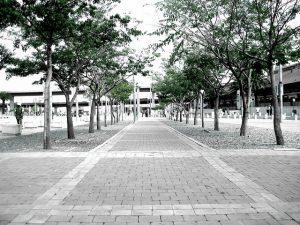A relief to the environment as Israel allots money to upgrade poorly services sewers in Arab towns.
Last Wednesday, Israeli Energy and Water Resources Minister Uzi Landau announced the government is allocating NIS 355 million to improve the sewerage systems in Arab neighborhoods across Israel. In recent years, the neglected and dilapidated sewer infrastructures in several Arab towns have collapsed, polluting nearby streams and nature reserves, including Nahal Kziv and Nahal Beit Hakerem in the Galilee.
The environmental group Zalul appeared last Wednesday before the Knesset Interior (the Israeli parliament) and Environment Committee to propose the creation of a fund to support the repair of sewage problems in poor cities not serviced by major water or sewage corporations, mainly Arab villages. Zalul warned that the NIS 335 million (about $85 million) would be spent in vain without plans and funds to maintain these systems.
The group estimates that because small cities can’t afford to keep up expensive sewage systems, around 20 percent of their wastewater ends up in local streams – a reason why the Jordan River is nearly dead. Solid waste management is also a severe problem in these areas, as these municipalities generally lack the funds for regular trash collection.
Over half of Arab-Israeli families live in poverty according to a 2011 report by Adalah, a legal center for Arab minority rights in Israel. The study also revealed that a disproportionate amount of Arab-Israelis live in over-crowded areas. Compounding the strains caused by crumbling infrastructure.
Israel’s minority communities have been able to retain a high level of independence and self-reliance if they choose. For example, the city of Jisr al Zarka, a 500-year-old village inhabited by Arab-Israelis that traditionally live as fishermen. But, as with Jisr al Zarka, this seclusion often comes at the cost of insufficient infrastructure and scant access to national resources. In order to address this problem without diluting cultural identity, perhaps Israel should turn to the growing number of high-tech Arab-Israeli innovators.
The UN recently commended an Israeli wastewater treatment facility known as Shafdan, for utilizing local resources and leadership. Shafdan is primarily managed by the community rather than national corporations. However, Israel’s national water company still offers Shafdan support to strategize and resolve problems that arise. Arab communities need similar innovations, planned and operated by the community with support from national sources.
::Haaretz
Image of Acre via Shutterstock
Read more about the environment and infrastructure in Arab-Israeli communities:
Arab School Scoops a Coveted Israeli Green Globe Award
Acre Father Aims to Make His Capital Green
Israeli Arabs and Jews Throw Out The Garbage Together




It would be very nice if someone could also help Jewish families in Tsfat. The city has turned care of sewer systems over to Peleg HaGalil but that does not include what they consider private sewers. They only take care of the public ones that run under the streets. People living in apartments or houses have to pay to have their own sewers upgraded. Many of them are over 50 years old and people just don’t have the money to pay to upgrade them. IT can cost thousands of shekels. We’ve written to the Mevaker Hamedinah who have asked Peleg HaGalil to at least investigate but it seems that no one is doing anything about it. People who have leaky sewers are not being forced to fix them and entire neighborhoods have to keep their windows closed at night in the hot summers because of the smell. Truly an absurd situation. And this is not to mention the sewers that are leaking on public streets.